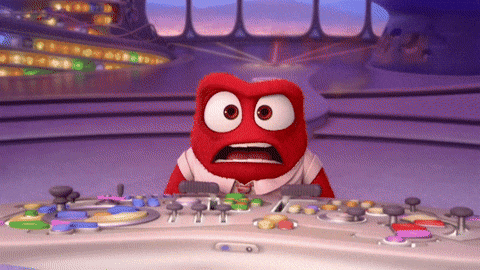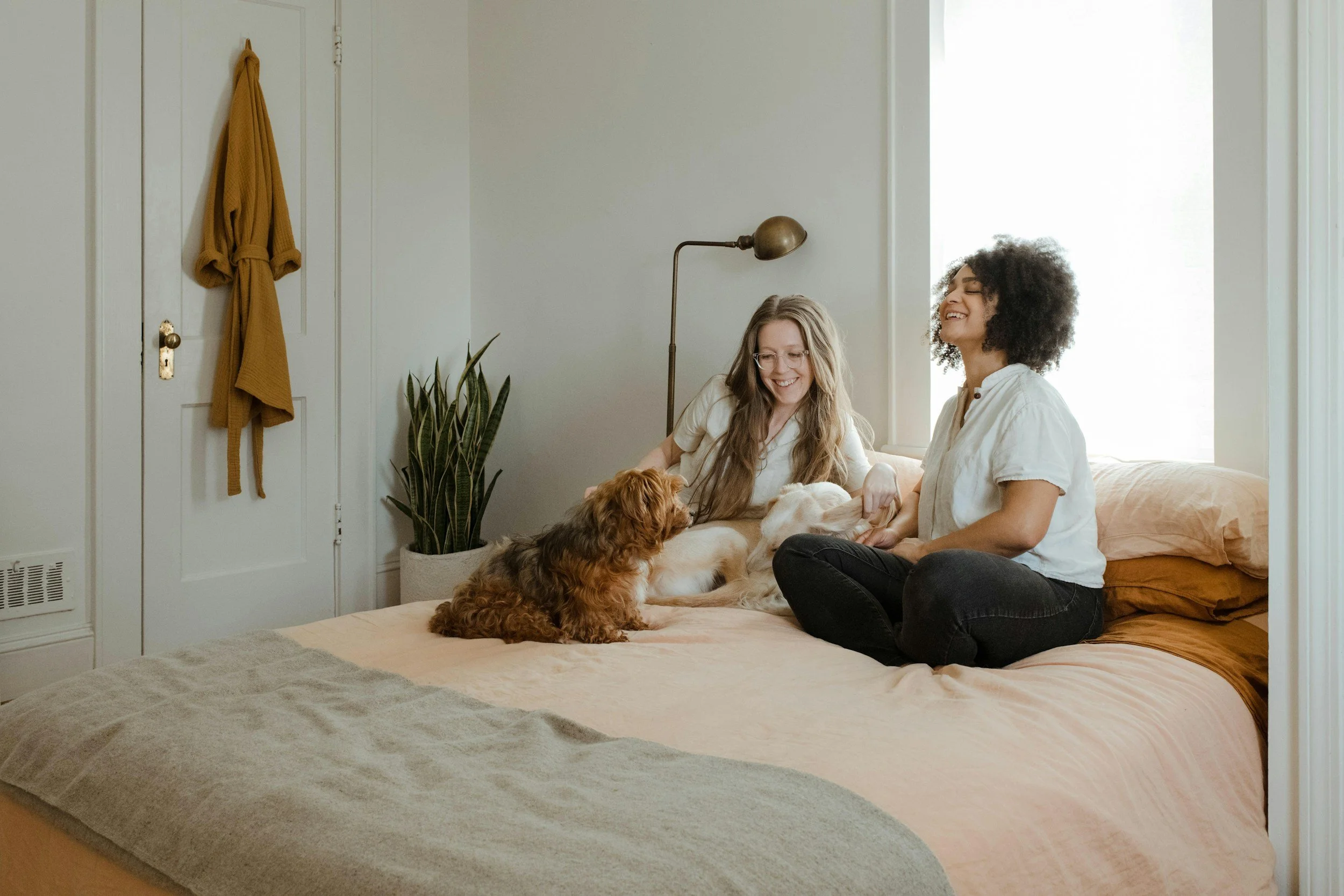Why Accepting How you Feel about Your Relationship Will Help Your Anxiety
Do you ever feel anxious about the fact you feel doubt?
Or you feel worried, because you’re worried about whether your partner is right for you?
Or you feel frustrated that you feel confused about what to do next?
Welcome to the glorious world of meta-emotions - how we feel about how we feel.
In today’s article we’ll cover:
Why it’s normal to do this
How accepting your feelings will help
How taking your Hamster for a walk can help you accept and process your emotions.
Why we judge our own emotions
Self Protection
Before you get frustrated that you feel frustrated about being frustrated, just remember this… It isn’t your fault you’ve come to be this way. It’s part of human nature. We want to protect ourselves from negative motions, from having to confront the discomfort that comes with admitting our fear or sadness or anger.
Social Expectations
We’ve also been socialised to act that way. Feelings aren’t ‘productive’. Feelings are uncomfortable. Women have been socialised to believe sensitivity, crying and talking about feelings are hysterical female things to do that make us inferior to men. Men are socialised to believe that sensitivity, crying and talking about feelings makes them weak and unmanly.
So we unconsciously conform to these ideas, and come to resist the experience of our own emotions.
Playful Scribblings - my twice monthly newsletter with words and doodles about relationships and playful self discovery.
The benefit of accepting your feelings
Ironically though, this resistance is a catalyst for further emotion. We feel anxious when we resist our anxiety. We feel anger when we bury our hurt. We feel shame when we try to run from our guilt.
“By accepting your emotions you can make conscious decisions about your life.”
We run ourselves into the ground, exhausted, by trying not to accept the reality of how we feel.
And sometimes, we lose important information to guide us in life. We wake up and wonder how we got to where we are. We didn’t give ourselves the chance to accept our emotions, understand what they mean, and open ourselves up to conscious choice.
By learning to accept your emotions you can process them in a healthy way, take control of your reactions and gain important information to help you make decisions about yourself, your relationship and your life.
So how can you learn to accept your feelings?
How taking my hamster for a walk helped me to accept my feelings
Firstly I’m going to share my experience of this, and then I’ll give you a step-by-step to try yourself with your relationship worries.
The last time I went through a break up I developed a pretty consistent pattern of behaviour.
I knew intellectually this was going to take time to process, but I also had (and wanted) to get on with life. There was a whole mixed bag of emotions going on that seemed too much to deal with, so I kept myself busy by constantly spending time with other people.
But then I’d get tired and I’d get mad.
I got frustrated that these people weren’t giving me what I needed, even though I knew there was nothing they could magically do and it wasn’t even their responsibility. I’d also get sudden feelings of being trapped and wanting to run for my life.
I was using the classic technique of distraction to avoid confronting my feelings. Some people numb with TV or video games, some with alcohol, some with shopping. I numb with extroversion.
“I used my extroversion to avoid dealing with my emotions.”
So I developed a new habit.
I gave myself time to pay attention to how I felt and write it down. I noticed the emotion sat deep in my gut. It felt like a little hamster furiously burrowing to get out, and the more I tried to stuff him down and starve him of sunlight, the harder he burrowed.
Sometimes he burrowed so hard, it felt like he’d jump out of my throat and I’d have to frantically run down the street after him.
So I personified that emotion as him. My little gut hamster. I couldn’t quite label the emotion ‘cause I hadn’t felt it like that before. Maybe it was loss, maybe it was guilt, maybe it was just total overwhelm at my changing situation, but the act of acknowledging my little gut hamster made me more able to understand what he was needing.
So I’d ‘take my hamster for a walk’. Sometimes this was writing about what I felt and thought in the current moment. Sometimes it was going for an actual walk and letting myself feel. Feel sad, feel guilty, feel pain.
All that gut hamster needed was an opportunity to be let out of his cage, stretch his legs and get a little pat on the head in recognition of those feelings.
What happened when I accepted my emotions
And it worked. Whenever I took my gut hamster for a walk, he would settle. No more furious burrowing. And no more misplaced frustration from me, or sudden urges to run and never come back.
If we accept our emotions, name them, sit with them, give them some time to be felt and heard. They move through us much quicker than when we deny their existence.
We put ourselves in control of our emotional environment, and gather helpful information on what it is we are needing to move forwards.
How to Accept The Feelings You Have About Your Relationship
(or really, any feelings you have, about anything, ever)
Ask yourself ‘What will I gain by accepting I feel this way?’
List all the things you’ll gain from letting go of resistance and accepting this feeling of doubt you have about your relationship.
Learn where your feeling of doubt sits.
Sit quietly for 5 minutes and connect with your body. Where does this feeling sit? Your gut? Your heart? Your throat? What sensation does it give you? What does it feel like? Practise noticing it so you can be conscious to when it arises.
Personify your doubt.
Just like my hamster, create a persona to represent your feeling. It could be a person, an animal, an object, a sensation - whatever comes to mind as you think and feel your sense of doubt. Draw it, write about it, paint it, create it! Making it real helps you see it outside of yourself and have a more objective perspective.
Ask your doubt what it needs.
Spend time with your doubt character understanding what it needs. Is it just that you need to feel the doubt? Is it trying to tell you something?
You might feel a relief just from acknowledging it’s there. If you don’t you might want to spend more time observing when your doubt character pops up to say hello, and get familiar with what triggers that to happen.





















I help late diagnosed ADHD folk make career and life decisions they trust. ICF Certified Coach, Youtuber & Writer.